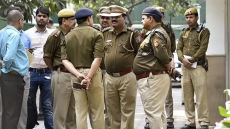The Supreme Court on Wednesday reserved verdict on a batch of petitions seeking review of its September 28, 2018, judgment that allowed women of all age groups to enter the Sabarimala temple in Kerala.
A five-judge constitution Bench headed by Chief Justice Ranjan Gogoi heard submissions on behalf of parties, including the Kerala government, Travancore Devaswom Board (TDB), Nair Service Society and others, and said that it would pronounce its order as to whether to review the judgment or not.
The apex court was seized of as many as 64 petitions including review plea.
During the hearing, the Travancore Devaswom Board (TDB), which runs the historic Sabarimala temple in Kerala, took a U-turn in the top court by supporting its verdict which had allowed women of all age groups to enter the shrine.
The Board, which also comprise the state government nominees, told the Constitution Bench that it is high time that a particular class not be discriminated on the ground of “biological attributes”.
In the forenoon, the Kerala government took the stand that it was in agreement with the September 28 last year verdict and had urged dismissal of petitions seeking review of the verdict.
“Article 25 (1) equally entitles all persons to practice religion,” senior advocate Rakesh Dwivedi, appearing for TDB, told the bench which also comprise Justices R F Nariman, A M Khanwilkar, D Y Chandrachud and Indu Malhotra.
The Board had earlier vehemently opposed the PIL by Indian Young Lawyers Association saying that the celibate character of Lord Aiyappa at Sabarimala temple was a unique religious feature which was protected under the constitution.
“Women cannot be excluded from any walk of life on biological attributes... equality is the dominant theme of the Constitution”, said Dwivedi adding that people should gracefully accept the apex court verdict.
The apex court was hearing a batch of petitions seeking review of the verdict allowing the entry of women of all ages into the Sabarimala shrine.
Kerala government, TDB and two women who had entered the shrine opposed the review petitions, including those filed by Nair Service Society.
On September 28, a five-judge Constitution bench, headed by the then CJI Dipak Misra, in a 4:1 verdict had paved the way for entry of women of all ages into the shrine, saying the ban amounted to gender discrimination.



